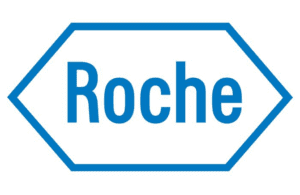 Roche (OTCQX: RHHBY) has announced that its investigational anti-amyloid beta antibody gantenerumab for Alzheimer’s disease received breakthrough therapy designation from FDA.
Roche (OTCQX: RHHBY) has announced that its investigational anti-amyloid beta antibody gantenerumab for Alzheimer’s disease received breakthrough therapy designation from FDA.
The agency has granted the status to a range of investigational Alzheimer’s, including lecanemab from Eisai and Biogen and donanemab from Eli Lilly. Biogen’s aducanumab had also received the designation before FDA approved it in June.
Clinical trial data has shown that gantenerumab significantly reduced brain amyloid plaque, which accumulates in the brains of people with Alzheimer’s.
The so-called amyloid hypothesis has led to the development of scores of failed experimental Alzheimer’s therapies. Biogen‘s (NSDQ:BIIB) aducanumab was the first to win FDA approval based on amyloid clearing.
Showing convincing evidence of cognitive improvement, however, has remained more elusive for drug developers. A Phase 3 trial of gantenerumab did not find significant differences in drug versus placebo recipients’ Clinical Dementia Rating scores. The study, which focused on prodromal Alzheimer’s disease (involving mild cognitive impairment), found dose-dependent reductions in brain amyloid-beta and tau levels.
Roche continues to study the drug in open-label extension trials of its SCarlet RoAD and Marguerite RoAD trials. The drug is also the subject of placebo-controlled and randomized GRADUATE 1 and 2 Phase 3 trials with more than 2,000 participants. Roche expects results from those two pivotal studies, which focus on prodromal to mild Alzheimer’s, in the second half of 2022.
If approved, gantenerumab would be the first subcutaneous Alzheimer’s therapy.
The investigational drug is also the first entirely human anti-amyloid-beta monoclonal antibody to enter clinical trials.